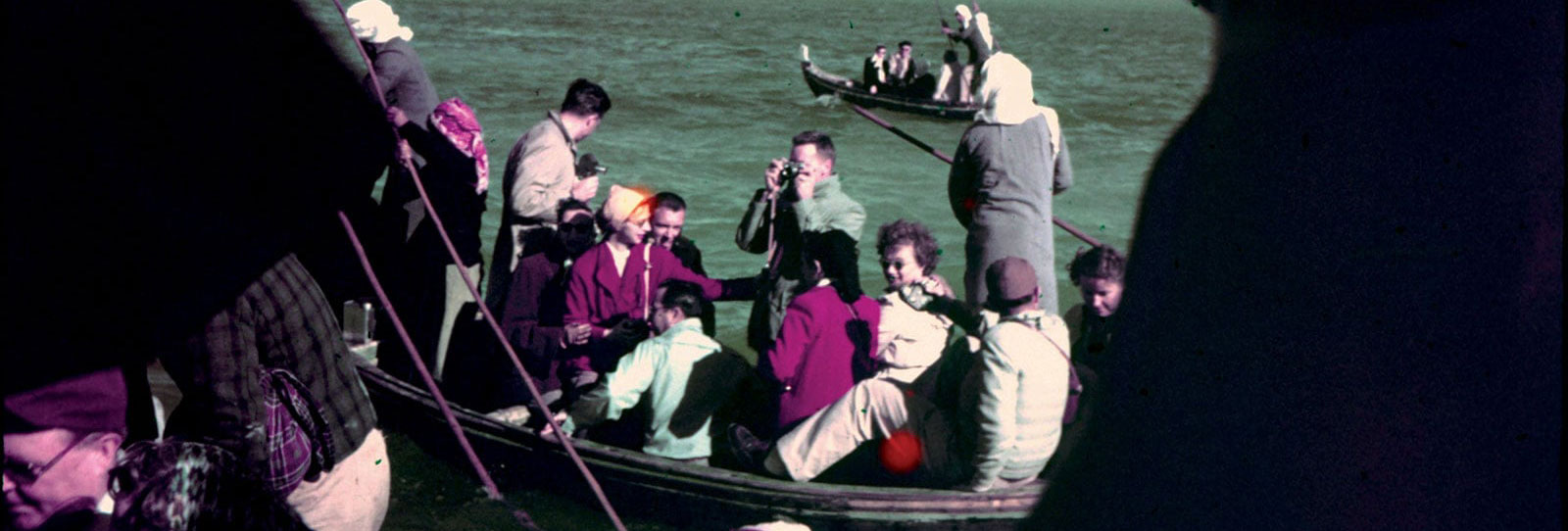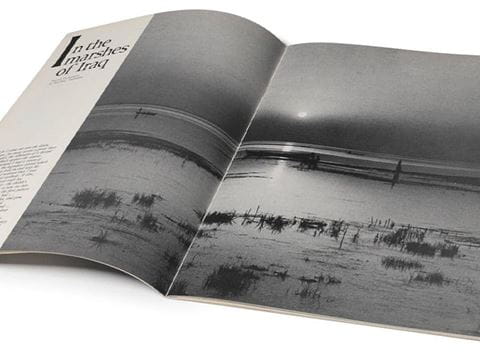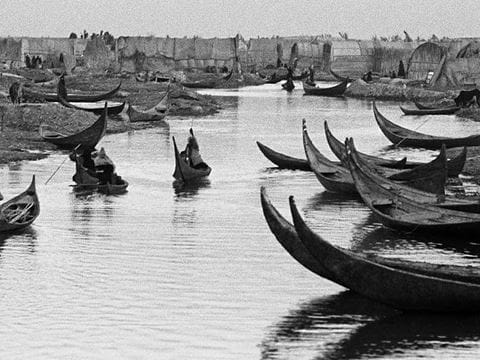
FirstLook: East Coast of Saudi Arabia, Circa 1952–1964
- Arts
- Photography
Photograph by Mary Elizabeth Hartzell
“Enclosed please find 59 negatives in various holders. These photos were in the possession of my aunt,” wrote Margaret Hartzell in a letter accompanying a small green box she donated five years ago to the archives of the King Abdulaziz Center for World Culture in Dhahran, Saudi Arabia.
Her aunt was Mary Elizabeth Hartzell, who passed away in 2009 at age 94. From 1952 to 1964, Mary Elizabeth, as she was known, worked for Aramco as the librarian of the Arabian Research Division, a job for which she had been recruited from the American Geographical Society in New York; she had already been taking Arabic language classes at the Asia Institute.
“She was intrepid for a single woman of that time,” says Margaret.
Mary Elizabeth took her photos with a twin-lens Rolleiflex camera, and most of the five dozen images in the box show scenes such as this wintertime weekend excursion of expatriate employees along the east coast of Saudi Arabia. While she is remembered at the library for her meticulous expansion of its collections in both English and Arabic, her carefully composed photos remained largely uncaptioned and undated.
You may also be interested in...

FirstLook - A blistering triumph for the back-street boys
Arts
Amid the roar of racers zooming toward the finish line in London during the 1980 Grand Prix, longtime auto-racing photographer and renowned artist Michael Turner trained his lens on a Saudia-Williams FW 07.
FirstLook: "In the Marshes of Iraq"
Arts
History
“In the Marshes of Iraq” — November/December 1966
All the Lands Were Sea
History
Arts
In late 1967, photographer Tor Eigoland traveled for more than: a month, mostly by canoe, among the countless villages of southern Iraq's vast marshes. Now, 45 years later, writer Anthony Sattin calls his photographs a "rare and ethnographic record of a lost world. They bring us back to a time and place where people lived in harmony with their environment and respected the balance the natural world needs to thrive.'